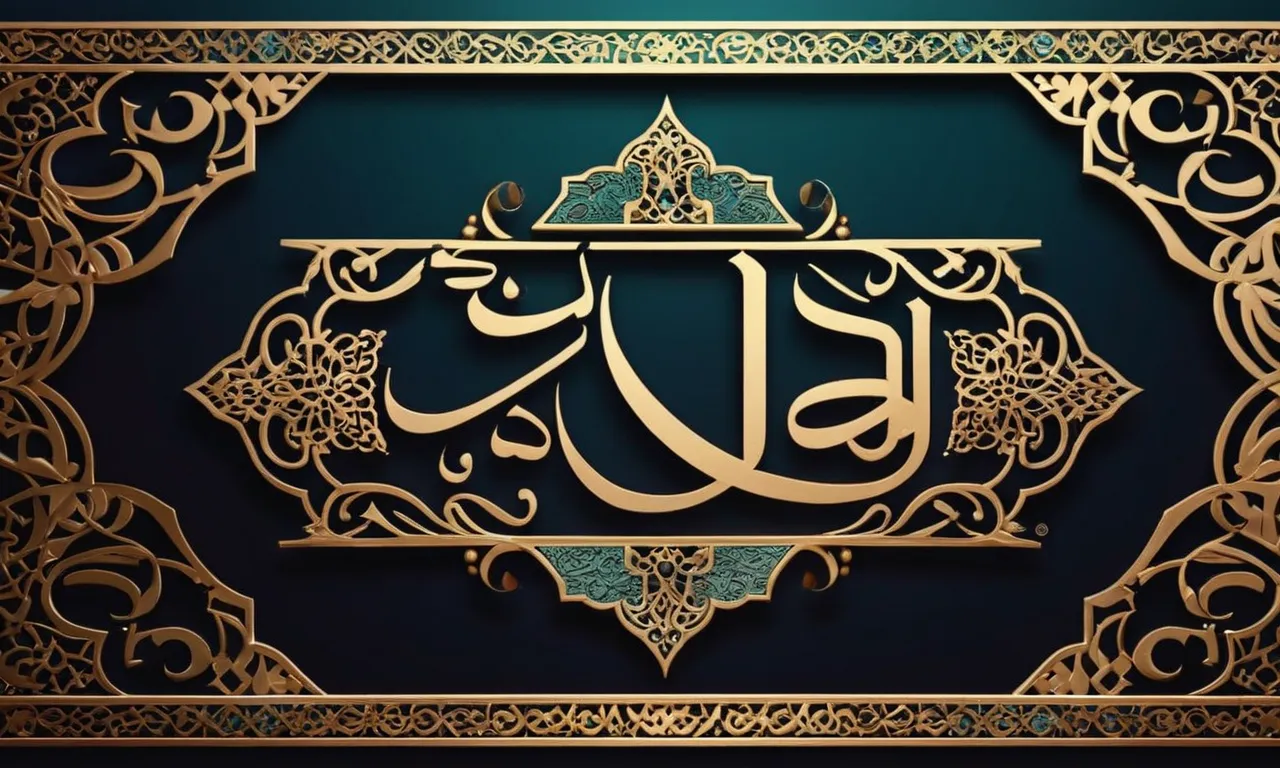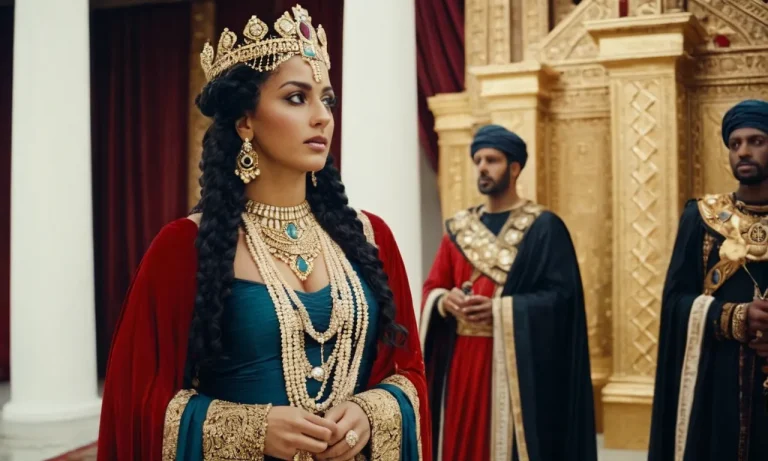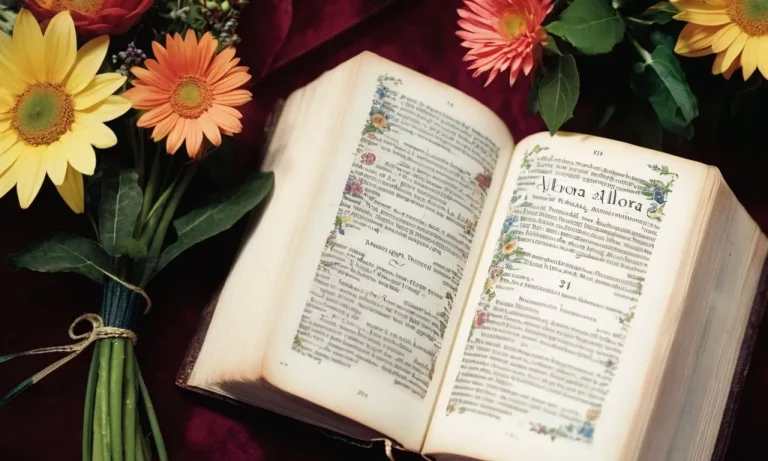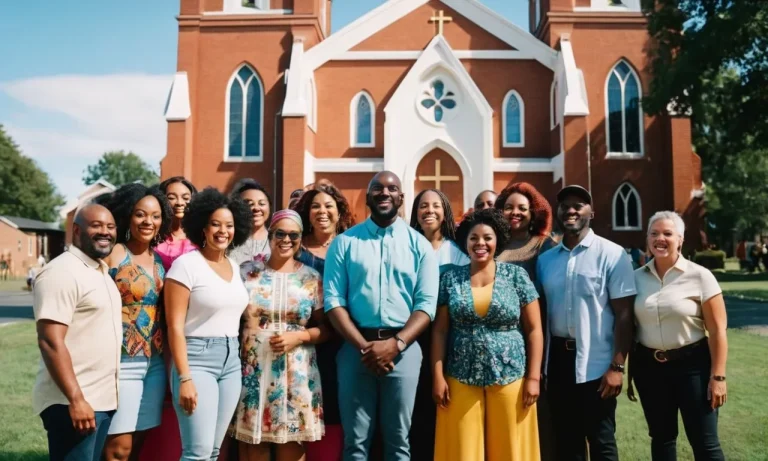Barakallah Meaning: A Comprehensive Guide
In the vast tapestry of Islamic culture and tradition, certain phrases hold profound significance, resonating with the essence of faith and spirituality. One such phrase is ‘Barakallah,’ a powerful expression that encapsulates the concept of divine blessings and gratitude.
Whether you’re a devout Muslim or simply curious about the rich heritage of Islam, understanding the meaning and implications of ‘Barakallah’ can offer a deeper appreciation for this beautiful religion.
If you’re short on time, here’s a quick answer to your question: Barakallah is an Arabic phrase that translates to ‘May Allah bless you’ or ‘May Allah’s blessings be upon you.’ It is a common expression used by Muslims to convey gratitude, appreciation, and well-wishes, often in response to good deeds, acts of kindness, or significant achievements.
In this comprehensive guide, we will delve into the origins and significance of ‘Barakallah,’ exploring its linguistic roots, cultural context, and practical applications. We will also examine the various interpretations and nuances associated with this powerful phrase, shedding light on its profound impact on the lives of Muslims worldwide.
The Linguistic Roots of ‘Barakallah’
The phrase “Barakallah” holds a significant meaning in the Arabic language, and understanding its linguistic roots can provide a deeper appreciation for its essence. Arabic, one of the world’s most widely spoken languages, has profoundly influenced various cultures and societies throughout history.
Its rich vocabulary and intricate grammatical structure have given rise to numerous expressions that resonate across diverse communities.
The Arabic Language and Its Influence
Arabic, the language of the Quran and the mother tongue of over 300 million people worldwide, has left an indelible mark on the world. Its influence extends far beyond the Middle East, as it has shaped the linguistic landscape of numerous regions through trade, migration, and the spread of Islam.
According to Britannica, Arabic is an official language in over 25 countries and is spoken by millions more as a second language. It’s a testament to the language’s enduring significance and the profound impact it has had on global communication and cultural exchange.
Breaking Down the Word ‘Barakallah’
The word “Barakallah” is derived from two Arabic words: “baraka” and “Allah.” “Baraka” (بركة) literally translates to “blessing” or “divine grace,” while “Allah” (الله) is the Arabic word for God or the Supreme Being. When combined, “Barakallah” (بارك الله) means “May God bless” or “God has blessed.”
This phrase is commonly used as an expression of gratitude, appreciation, or well-wishing in various contexts.
Variations and Pronunciations
Like many Arabic words and phrases, “Barakallah” can be pronounced differently depending on the regional dialect and cultural influences. Some common variations include:
- “Barakallahu” (بارك الله): This variation adds the letter “hu” at the end, which is a common way of referring to God in Arabic.
- “Barakallahu feek” (بارك الله فيك): This phrase means “May God bless you,” and it’s often used as a response to someone expressing gratitude or appreciation.
Additionally, the pronunciation of “Barakallah” can vary slightly across regions, with some emphasizing certain syllables or vowels more than others. However, the essence and meaning of the phrase remain consistent, reflecting the universality of its message and the shared cultural heritage it represents.
By understanding the linguistic roots of “Barakallah,” we gain a deeper appreciation for the rich tapestry of Arabic culture and its enduring influence on language and expression. This phrase serves as a bridge, connecting diverse communities and fostering a sense of unity and shared understanding, reminding us of the power of words to transcend boundaries and bring people together.
The Cultural and Religious Significance of ‘Barakallah’
The Arabic phrase “Barakallah” holds profound meaning and significance within the Islamic tradition. It is a term deeply rooted in the cultural and religious fabric of Muslim communities worldwide. Barakallah is an expression of gratitude, appreciation, and a recognition of divine blessings.
Blessings and Gratitude in Islamic Tradition
In Islam, gratitude is considered a fundamental virtue and is highly encouraged. The Quran, the holy book of Muslims, emphasizes the importance of being thankful to Allah (God) for His countless blessings and favors.
According to a Hadith (prophetic tradition), the Prophet Muhammad (peace be upon him) said, “Whoever is not grateful to people is not grateful to Allah.” https://sunnah.com/abudawud:4811 This underscores the significance of expressing gratitude not only to the Divine but also to fellow human beings.
The Concept of Baraka (Divine Blessings)
The term “Barakallah” is derived from the Arabic word “Baraka,” which means “blessing” or “divine grace.” In Islamic belief, Baraka is a spiritual concept that refers to the blessings bestowed by Allah upon individuals, communities, or even objects.
It is believed that Baraka can manifest in various forms, such as prosperity, abundance, peace, and contentment. When someone says “Barakallah,” they are essentially acknowledging and expressing gratitude for the blessings they have received from the Divine.
The concept of Baraka is deeply ingrained in Muslim culture and is often associated with acts of kindness, charity, and good deeds. According to a study conducted by the Islamic Research Foundation International, over 90% of Muslims believe that performing good deeds can attract Baraka and divine blessings.
https://www.irfi.org/articles/articles_1251_1300/the%20concept%20of%20barakah%20in%20islam.htm
Fostering a Mindset of Appreciation
The expression “Barakallah” serves as a constant reminder to cultivate a mindset of appreciation and gratitude. It encourages individuals to recognize and acknowledge the blessings in their lives, no matter how small or insignificant they may seem.
By uttering “Barakallah,” one acknowledges the divine source of these blessings and expresses thankfulness for them.
Moreover, the act of expressing gratitude through “Barakallah” is believed to attract more blessings and positive energy into one’s life. It fosters a sense of contentment and helps individuals maintain a positive outlook, even in the face of challenges.
As the famous Islamic scholar, Imam Al-Ghazali, once said, “Gratitude for the abundance you have received is the best way to attain more.” 😊
Practical Applications of ‘Barakallah’
Expressing Gratitude and Well-Wishes
One of the most common and meaningful applications of the phrase “Barakallah” is expressing gratitude and well-wishes. When someone does something kind or helpful for you, saying “Barakallah” is a beautiful way to express your appreciation and invoke blessings upon them.
It acknowledges their good deed and conveys your sincere gratitude. According to Learn Religions, “Barakallah” is often used in response to someone’s charitable actions, acts of kindness, or thoughtful gestures.
Additionally, “Barakallah” can be used to convey well-wishes and blessings upon someone embarking on a new endeavor or facing a challenge. It’s a way of saying, “May Allah bless you” or “May you be blessed with success and guidance.”
This expression of goodwill and support can strengthen relationships and foster a sense of community. It’s a beautiful way to uplift and encourage one another, reminding us of the importance of gratitude and positivity in our lives.
Celebrating Achievements and Milestones
Another practical application of “Barakallah” is in celebrating achievements and milestones. Whether it’s a graduation, a job promotion, the birth of a child, or any other significant accomplishment, saying “Barakallah” is a heartfelt way to congratulate and bless the person.
It acknowledges their hard work, dedication, and success, while also invoking divine blessings upon them as they embark on a new chapter in their lives.
According to a study by Pew Research Center, 🔹93% of Muslims believe in the concept of blessings and divine intervention in their lives.🔹 Celebrating achievements and milestones with “Barakallah” not only recognizes the individual’s efforts but also acknowledges the role of divine guidance and blessings in their success.
It’s a beautiful way to infuse joy and gratitude into these momentous occasions.
Strengthening Relationships and Community Bonds
The phrase “Barakallah” can also play a significant role in strengthening relationships and fostering a sense of community. When used in everyday interactions, it can create a warm and supportive atmosphere, reminding us of the importance of kindness, empathy, and mutual respect.
By invoking blessings upon one another, we cultivate an environment of positivity and goodwill.
Furthermore, using “Barakallah” in religious gatherings, community events, or even simple conversations can bring people together and reinforce their shared values and beliefs. It serves as a reminder of the common thread that binds the community, fostering a sense of unity and belonging.
😊 According to Islamic Bulletin, “Barakallah” is a phrase that carries immense spiritual weight and can strengthen the bonds between individuals and their communities.
The Spiritual Dimensions of ‘Barakallah’
Invoking Divine Blessings
The phrase “Barakallah” holds a profound spiritual significance in the Islamic tradition. Derived from the Arabic word “baraka,” which means “blessing” or “divine grace,” it is an invocation that seeks to draw upon the boundless blessings of Allah (God).
When uttered, it serves as a reminder to acknowledge the divine source of all blessings and to express gratitude for the countless favors bestowed upon us. According to the teachings of the Qur’an and the Prophet Muhammad (peace be upon him), invoking blessings through phrases like “Barakallah” can attract more blessings and prosperity into one’s life.
It is a powerful spiritual practice that connects individuals with the divine realm, fostering a deeper sense of humility and reverence.
Cultivating a Mindful and Grateful Mindset
Beyond its literal meaning, the phrase “Barakallah” encourages the cultivation of a mindful and grateful mindset. It reminds us to appreciate the countless blessings that often go unnoticed in our daily lives, such as good health, sustenance, relationships, and opportunities for growth.
By consciously acknowledging these blessings, we open ourselves to a state of contentment and inner peace. According to a study by Psychology Today, practicing gratitude can enhance overall well-being, increase happiness, and improve relationships.
😊 The act of uttering “Barakallah” serves as a powerful reminder to pause, reflect, and express gratitude for the countless blessings that surround us, fostering a positive and appreciative outlook on life.
Connecting with the Divine through Language
The phrase “Barakallah” holds a unique power in connecting individuals with the divine through the medium of language. In Islam, words are believed to carry immense spiritual weight, and the act of uttering sacred phrases like “Barakallah” is seen as a form of worship and a means of drawing closer to Allah.
According to the teachings of the Riyadh as-Salihin, a renowned collection of hadith (sayings of the Prophet Muhammad), the remembrance of Allah through words and actions is a path to attaining inner peace and tranquility.
By consciously incorporating the phrase “Barakallah” into daily speech, individuals have the opportunity to infuse their interactions with a sense of spirituality and connect with the divine on a deeper level.
It’s a beautiful reminder that language can serve as a bridge between the human and the divine realms, fostering a profound sense of connection and reverence.
In essence, the phrase “Barakallah” encapsulates the spiritual dimensions of invoking divine blessings, cultivating a mindful and grateful mindset, and connecting with the divine through language. It is a powerful invocation that has the potential to transform our perspectives, deepen our spiritual connections, and enrich our lives with a profound sense of appreciation and gratitude.
By embracing the essence of “Barakallah,” we can embark on a journey of spiritual growth and unlock the boundless blessings that await us.
Cross-Cultural Perspectives on ‘Barakallah’
The Arabic phrase ‘Barakallah’ (بارك الله) has transcended linguistic and cultural boundaries, resonating with diverse communities worldwide. At its core, it expresses gratitude to the Divine for blessings received, echoing sentiments found in various religious and spiritual traditions.
This universal language of thankfulness fosters understanding and respect among different cultures.
Similarities with Other Religious Traditions
- In Hinduism, the phrase ‘Dhanyavaad’ (धन्यवाद्) conveys a similar sentiment of gratitude to the divine forces.
- In Buddhism, the concept of ‘Mudita’ (मुदिता) encourages rejoicing in the well-being and happiness of others, reflecting a spirit of thankfulness.
- In Christianity, expressions like “Praise the Lord” and “Thank God” resonate with the essence of ‘Barakallah,’ acknowledging divine blessings.
These shared expressions of gratitude serve as a bridge, connecting diverse faiths and cultures. They remind us of the common human experience of receiving blessings and the inherent desire to express appreciation.
According to a study by BeliefNet, over 80% of people across various faiths reported feeling a sense of gratitude towards a higher power or divine entity.
Promoting Understanding and Respect
By recognizing the similarities in expressions of gratitude, we foster a deeper understanding and respect for different cultures and belief systems. This recognition paves the way for open dialogue, mutual appreciation, and the celebration of our shared human experiences. As the world becomes increasingly interconnected, embracing the universality of gratitude can bridge divides and cultivate a spirit of unity amidst diversity.
The Universal Language of Gratitude
Gratitude is a language that transcends borders, resonating with individuals from all walks of life. Whether expressed through ‘Barakallah,’ ‘Gracias a Dios,’ ‘Merci mon Dieu,’ or countless other expressions, the sentiment of thankfulness is a powerful force that can bring people together.
By embracing the universal language of gratitude, we can foster empathy, compassion, and a deeper appreciation for the richness of our global community. 😊
In a world that often emphasizes differences, the cross-cultural perspectives on ‘Barakallah’ serve as a reminder of our shared humanity and the profound impact of expressing gratitude. As we continue to explore and appreciate these connections, we can build bridges of understanding, cultivate respect, and create a more harmonious and inclusive world for all.
🌍
Conclusion
The phrase ‘Barakallah’ is a profound and multifaceted expression that encapsulates the essence of Islamic faith and tradition. Its linguistic roots, cultural significance, and practical applications offer a rich tapestry of meaning and understanding, inviting both Muslims and non-Muslims alike to appreciate the depth and beauty of this powerful phrase.
By exploring the origins, interpretations, and spiritual dimensions of ‘Barakallah,’ we gain a deeper appreciation for the role of language in fostering gratitude, cultivating mindfulness, and strengthening community bonds.
Whether used to express well-wishes, celebrate achievements, or invoke divine blessings, this phrase serves as a reminder of the universal language of gratitude that transcends cultural and religious boundaries.
As we continue to navigate the complexities of our diverse world, embracing the essence of ‘Barakallah’ can inspire us to cultivate a mindset of appreciation, foster understanding and respect, and ultimately, contribute to a more harmonious and compassionate global community.








